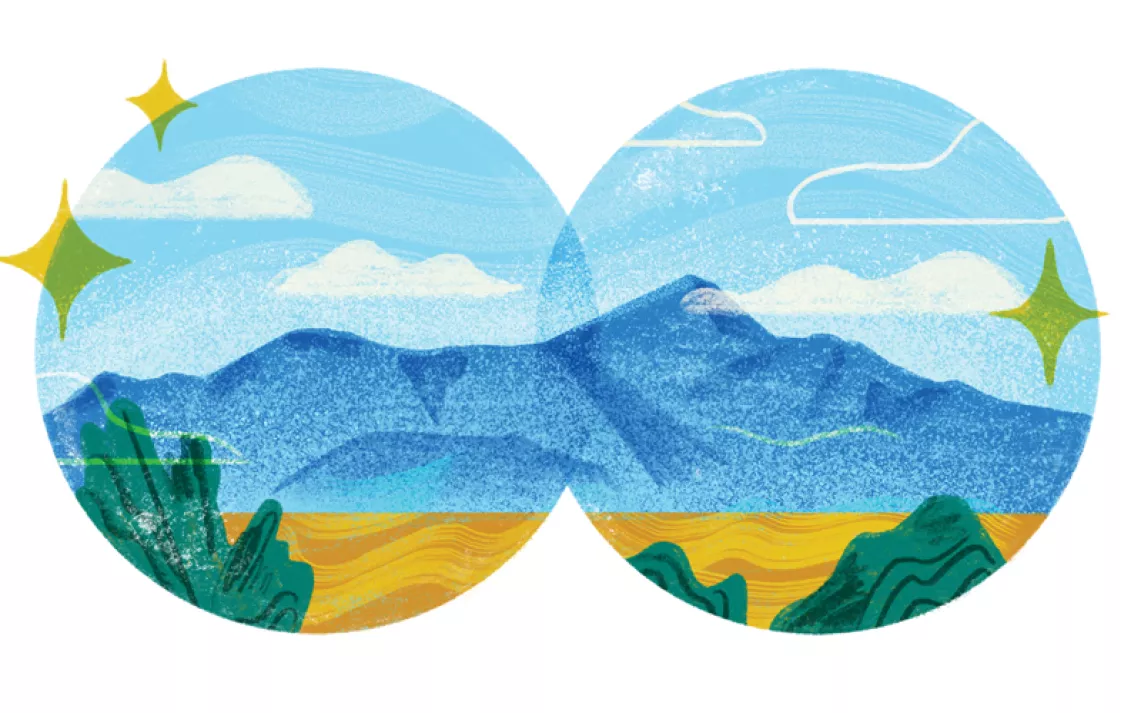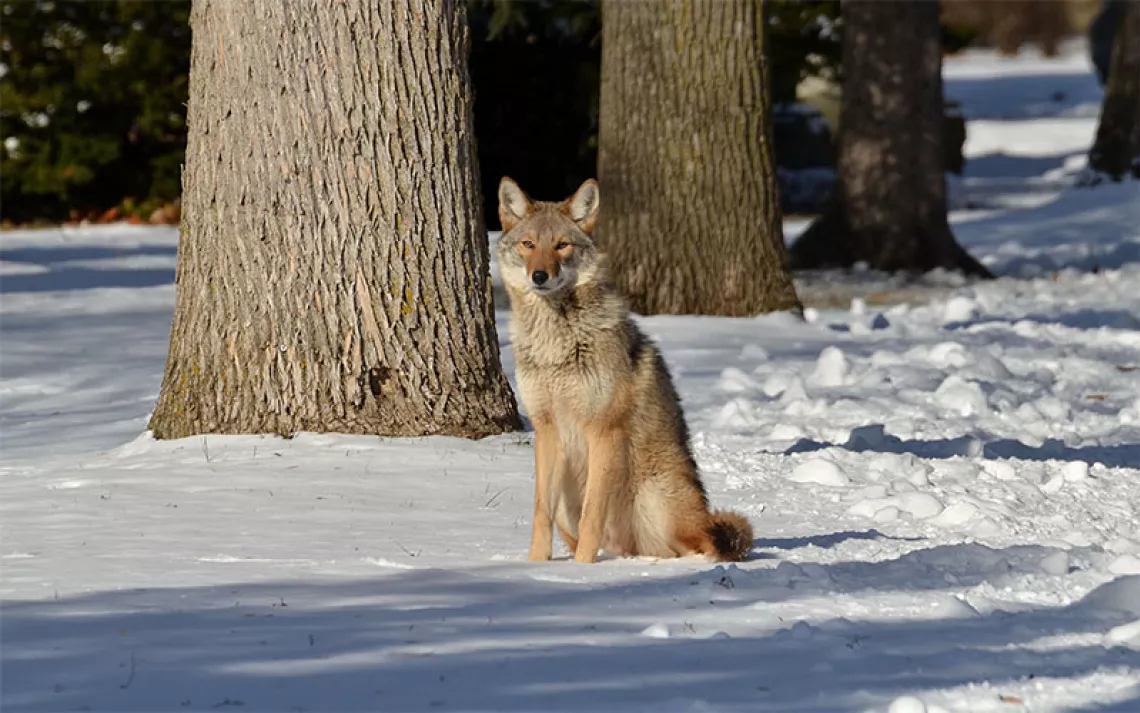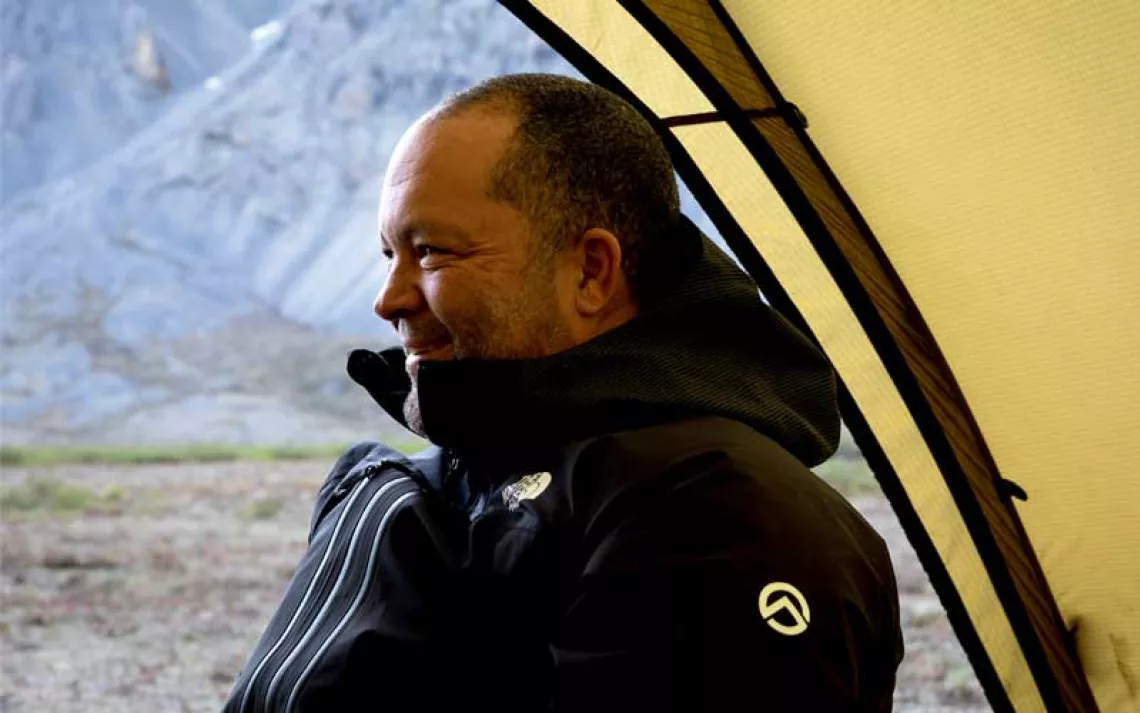The Most Important Conservation Law You’ve Never Heard of Is Set to Expire
Time is running out for Congress to reauthorize the Land and Water Conservation Fund

Photo by AndrewSoundarajan/iStock
Update: On October 2, two days after the Land and Water Conservation Fund expired, the Senate Energy and Natural voted 16 to 7 to permanently reauthorize the program. But the Senate's plan to set a mandatory funding level faces opposition from House Republicans, who object to establishing a funding floor. "Working with our colleagues in the other body is going to be important as we advance what I think we all agree is a national priority—and it should be a national priority," Senator Lisa Murkowski of Alaska, chair of the Senate committee, told reporters. "We'll figure it out." Neither House nor Senate leaders have yet scheduled floor votes on reauthorizing the program.
In mid-September, in an unusual fit of bipartisanship, the House of Representatives passed by an overwhelming margin the Every Kid Outdoors Act. By a vote of 383 to 2, the representatives approved a bill that will make permanent the popular program under which fourth graders and their families get free access to any national park. Outdoor advocates, naturally, were psyched. “We’re thrilled to see the legislation pass, helping create opportunity for young people and their families to experience our parks and public lands,” Arne Arens, the president of The North Face, said after the bill’s passage.
Perhaps the bipartisan spirit was contagious—because that same week, the House Natural Resources Committee approved a measure to permanently reauthorize the Land and Water Conservation Fund, a 54-year-old program that helps federal, state, and local parks with land acquisition and property improvements. Committee veterans couldn’t resist a little bit of kumbaya in announcing their vote. “This is a taste of what’s possible when people work together in good faith,” Arizona Democrat Raúl Grijalva said in a statement. “The days of LWCF being a political football could end very soon.” The committee chair, Utah Republican Rob Bishop, echoed that sentiment, saying, “Creating outdoor opportunities for people was the reason Congress created LWCF.… I thank Ranking Member Raúl M. Grijalva for his work to find common ground.”
And yet, good vibes notwithstanding, the Land and Water Conservation Fund is still set to expire this Sunday, September 30, because Congress has not concluded the reauthorization process. And that’s a real shame. Because while the LWCF might not have the name-brand awareness of, say, the Wilderness Act or the Endangered Species Act, it’s among the United States’ most effective conservation laws. Every day without the fund is one more day of lost revenue for our parks and preserves. According to research conducted by the Center for Western Priorities, if Congress fails to reauthorize and fully fund the LWCF, more than 200 public lands projects nationwide involving some 300,000 acres will be put at risk—and that’s just in the short run.

The LWCF has long enjoyed widespread bipartisan support for good reason. Deficit hawks appreciate the program because it has no impact on the federal budget. Established in 1964, the fund is fueled by receipts from offshore oil and gas drilling; not a single taxpayer cent goes to sustain it. Small government types like how the LWCF helps underwrite state and local parks while also providing funds to national parks. (The bill passed by the House committee calls for equal allocations to local and national parks.) The fund benefits outdoors people of many stripes—hunters, anglers, bird watchers, hikers, campers—by enhancing all sorts of recreation opportunities. Since the LWCF was established, the program has supported more than 42,000 land acquisition grants that have protected about 3 million acres.
Public lands advocates are obviously fans. “You would be hard pressed to find a more effective conservation program than the Land and Water Conservation Fund,” John Gardner, the senior director of budget and appropriations at the National Parks Conservation Association, told me Wednesday as he was leaving meetings on Capitol Hill.
Elected Republicans like it too. “The Land and Water Conservation Fund uses zero dollars of taxpayer money,” Senator Richard Burr, a Republican from North Carolina and probably the program's biggest GOP champion in Congress, reminded his colleagues in a Senate floor speech last summer. “This is self-generating off of the resources we take out of the land to be pumped back into protecting natural treasures for generations yet to come. Masterful, absolutely masterful.”
Even Interior Secretary Ryan Zinke is in favor. “The secretary absolutely supports permanent reauthorization, and always has,” an Interior Department spokesperson emailed me Thursday, pointing out that Zinke has been using his Twitter account to trumpet LWCF accomplishments.
Why, then, is this uncontroversial and widely beloved program on the verge of sunsetting? Part of the answer is Congress’s glacial pace. The Senate Committee on Energy and Natural Resources isn't scheduled to consider LWCF reauthorization until October 2, two days after the fund expires. Another issue is the continued opposition among some Republicans to any expansion of federal lands. Arizona Republican Paul Gosar, for instance, has said that any new lands acquisitions from the fund should be offset with sell-offs of other federal lands. And finally—despite Congressman Grijalva’s aspirations—the LWCF is still being used a political football.
House and Senate staffers from both parties privately worry that LWCF reauthorization might only move ahead as part of a broader slate of public lands bills. Representative Rob Bishop, the chair of the House Natural Resources Committee, might try to push forward a bigger public lands package that would include LWCF as a sweetener. (Press staff on the Natural Resources Committee did not respond to requests for comment.) Such an approach would likely siphon off support from conservation groups and Democrats, leaving the LWCF orphaned.
“We would love to see it passed, but not if it’s attached to a larger public lands package that includes things we oppose,” Jordan Giaconia, a policy associate in the Sierra Club’s Capitol Hill office, told me. Gardner from the NPCA said his organization would oppose any legislative package that sets up a “false choice.”
Members of Congress shouldn’t be forced into making a false choice either. The Land and Water Conservation Fund is a time-tested success story. Democrats like it; Republicans like it. A stand-alone reauthorization bill would pass both chambers in a heartbeat—and would be another chance for Congress to demonstrate that, when it comes to conserving the country’s natural heritage, it is still possible to find common ground.
 The Magazine of The Sierra Club
The Magazine of The Sierra Club



